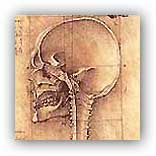|
Johns Hopkins study shows how dopamine influences
what we pay attention to, even if we don't realize
it: the human brain is wired to pay attention to
previously pleasing things, a finding that could
help explain why it's hard to break bad habits.

In the new issue of Current Biology, Johns Hopkins
University neuroscientists demonstrate for the first
time that when people see something associated with
a past reward, their brain flushes with dopamine,
even if they aren't expecting a reward and even if
they don't realize they're paying it any attention.
The results suggest we don't have as much
self-control as we might think.
"We don't have complete control over what we pay
attention to," said senior author Susan M. Courtney,
a professor in JHU's Department of Psychological and
Brain Sciences. "We don't realize our past
experience biases our attention to certain things."
This could be why it's so hard for people to break
the cycle of addiction and why dieters keep thinking
about fattening food when they're trying to eat
better.
"I could choose healthy food or unhealthy food, but
my attention keeps being drawn to fettuccini
Alfredo," Courtney said. "What we tend to look at,
think about, and pay attention to is whatever we've
done in the past that was rewarded."
For their study, the researchers asked 20
participants to find red and green objects on a
computer screen filled with different colored
objects.
Participants got $1.50 for finding red objects and
25 cents for finding green ones.
The next day, while brain scans (positron emission
tomography, or PET scans) were conducted,
researchers asked participants to find certain
shapes on the screen. Color no longer mattered and
there was no reward involved.
But when a red object appeared, participants
automatically focused on it and a particular part of
their brain involved in attention filled with
dopamine, a brain chemical proven to be released
when we receive rewards.
People in the study found the shapes they were
looking for; they were just slower doing it. The
previously rewarded "red" distracted them.
"What's surprising here is people are not getting
rewarded and not expecting a reward," Courtney said.
"There's something about past reward association
that's still causing a dopamine release. That
stimulus has become incorporated into the reward
system."
Some of the test subjects were more distracted by
the previously rewarded red than others. Those who
were most distracted had the most elevated dopamine
levels while those who were better able to focus on
the task at hand appeared to have suppressed any
release of dopamine.
Generally speaking, distractions tend to be bigger
for people prone to addiction and smaller for people
who are successful abstainers and people who are
depressed and not caring about rewards, Courtney
said.
The findings suggest there could be a way to
pharmaceutically curb these neurochemical
distractions—a potential benefit for addicts,
dieters, and those with other problem behaviors.
Courtney's co-authors are postdoctoral fellow Brian
A. Anderson; School of Medicine assistant professor
Hiroto Kuwabara; School of Medicine professor Dean
F. Wong; former research assistant Emily G. Gean;
associate professor of radiology Arman Rahmin;
School of Medicine assistant professor James R.
Brasic; research and clinical fellow Nobel George;
senior clinical research fellow Boris Frolov and
Steven Yantis, a professor in the Department of
Psychological and Brain Sciences who died of cancer
in 2014.
For more information
Johns Hopkins University
Link...
MDN |